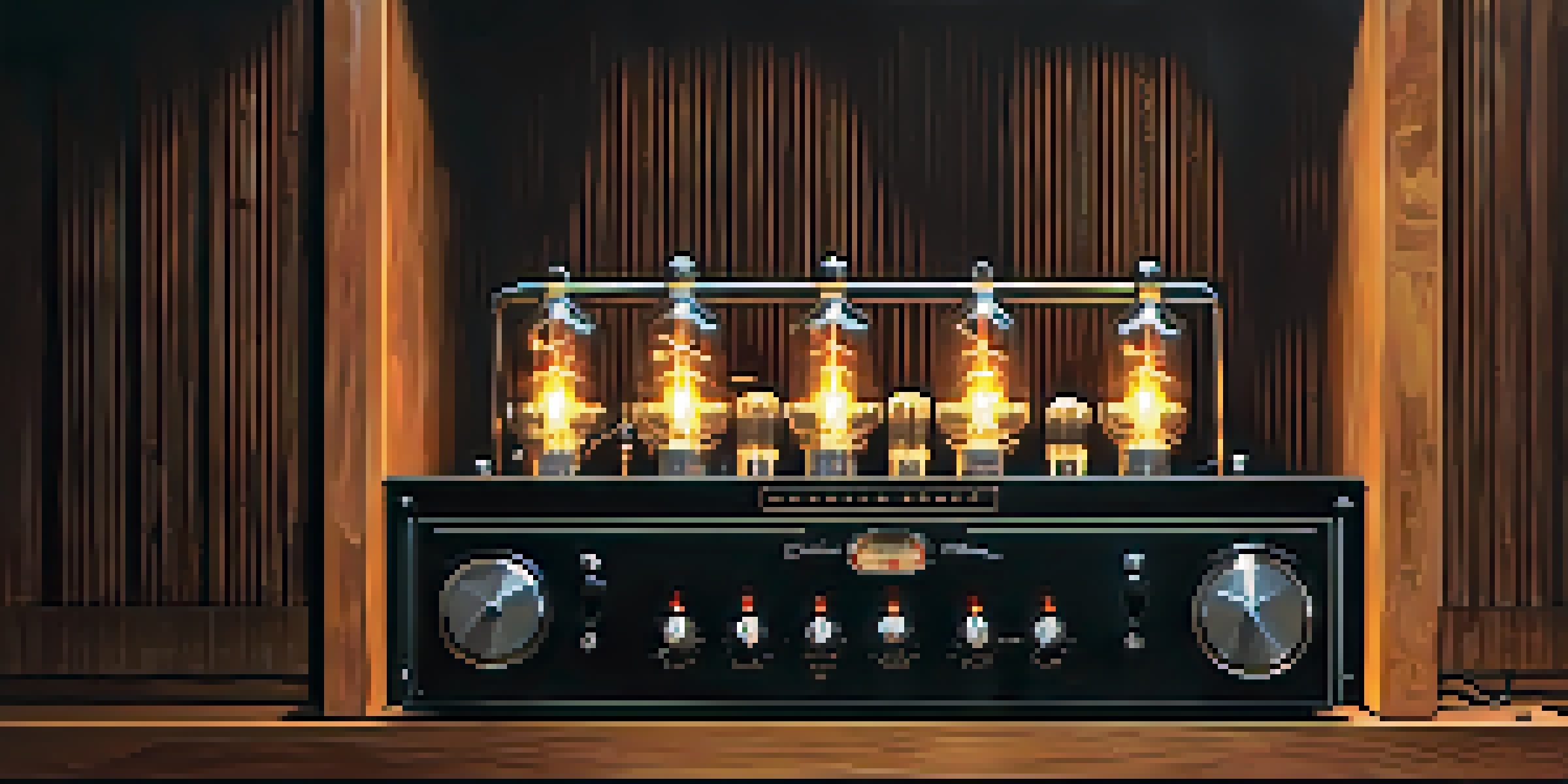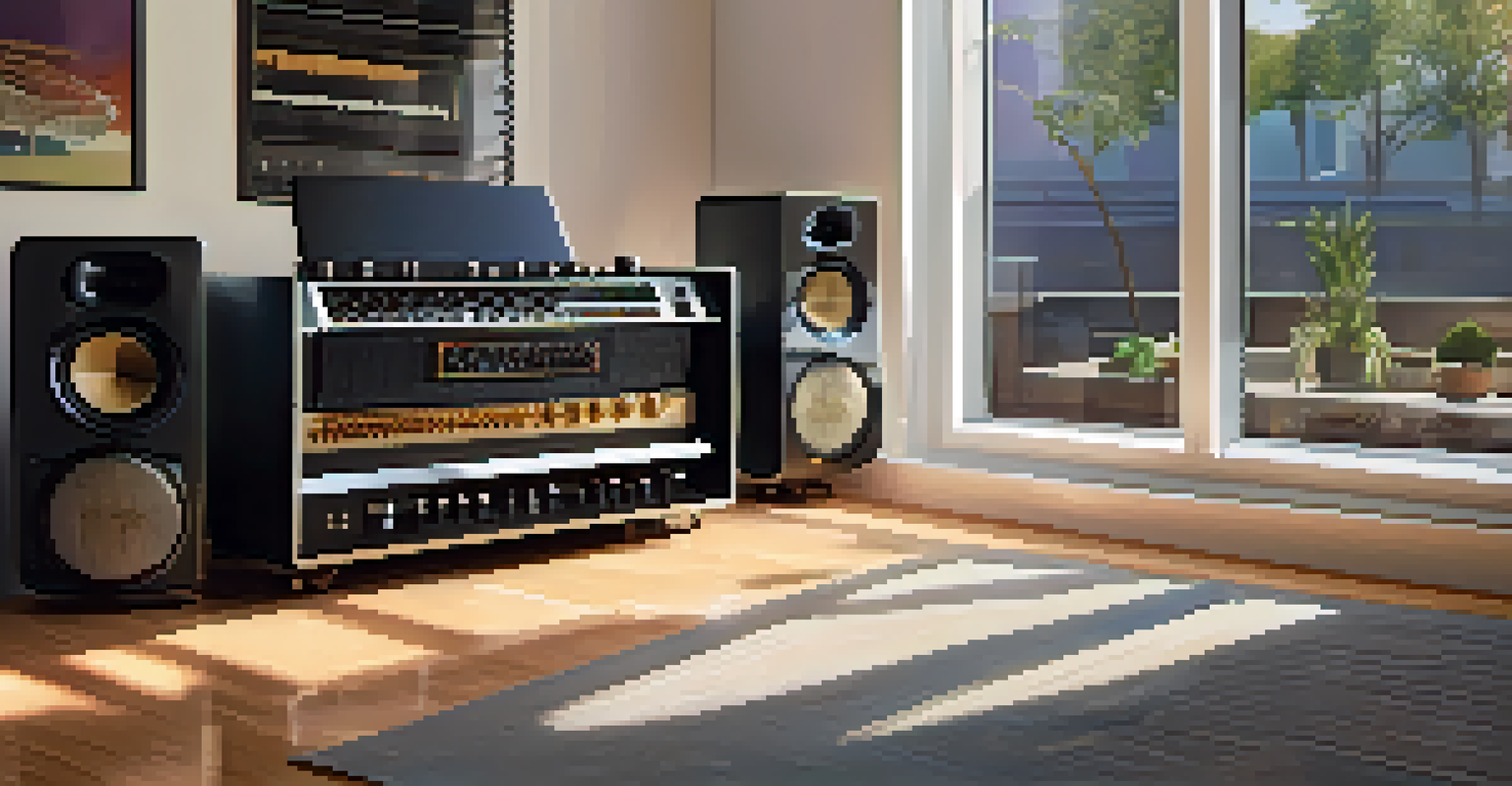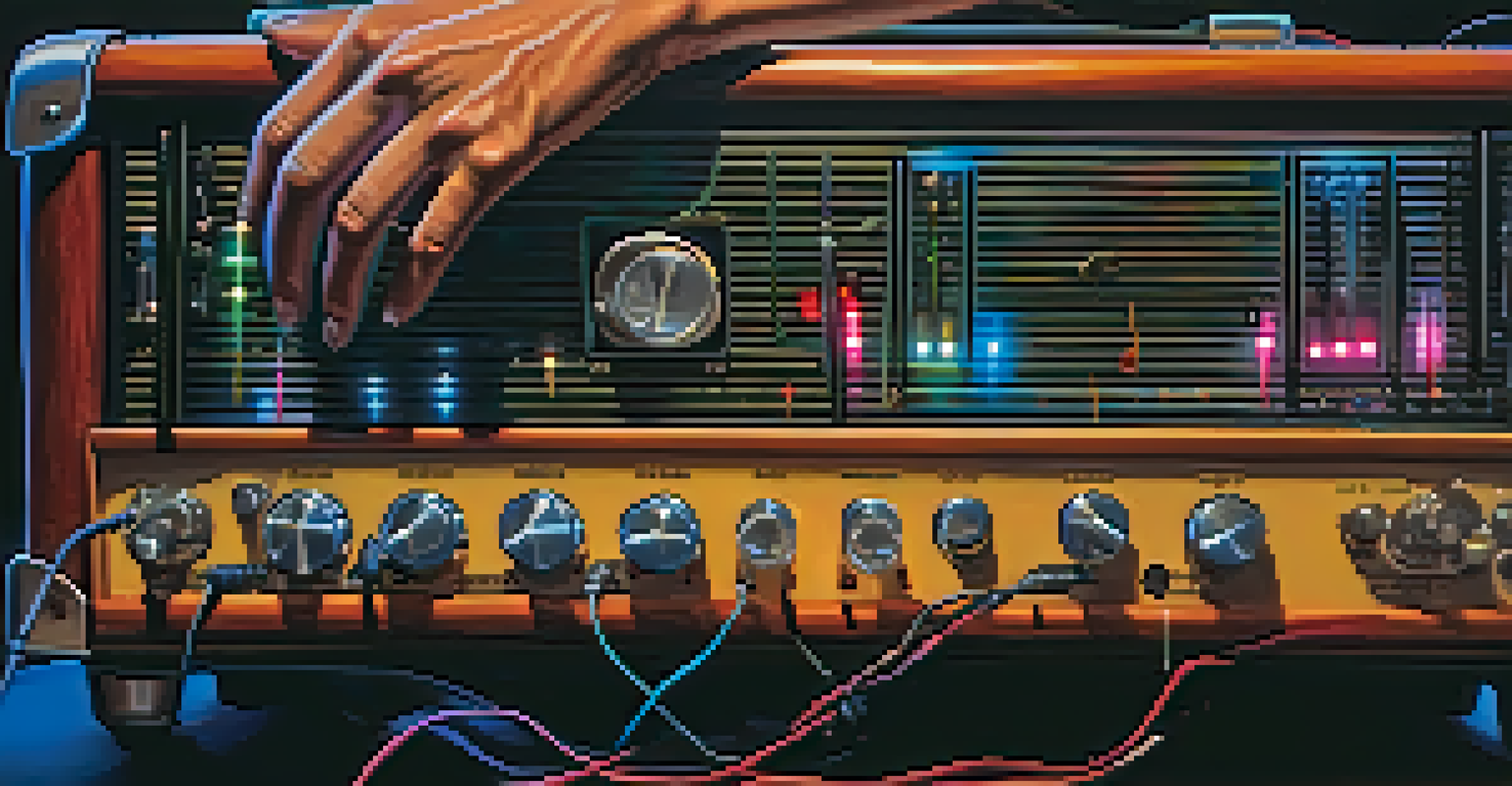Understanding Amplifiers: Key for Live Guitar Sound Quality

What is an Amplifier and Why is it Important?
An amplifier is a device that increases the power of a signal, making it crucial for live music performances. For guitarists, it transforms the electric guitar's weak signal into a robust output that can be heard over drums and other instruments. Without an amplifier, your guitar would sound like a whisper amid the musical chaos of a live setting.
The guitar is a small orchestra. It is a multicolored instrument.
Think of an amplifier as a megaphone for your guitar; it takes your subtle strumming and turns it into a thunderous sound that fills a venue. This amplification not only boosts volume but also shapes the tone, allowing musicians to express their artistry. So, whether you're playing soft ballads or heavy rock, the choice of amplifier can significantly impact your sound.
Moreover, amplifiers come in various types, each offering unique characteristics. From tube amplifiers with their warm, rich tones to solid-state models known for their reliability and clarity, understanding these options can help you choose the right one for your musical style.
Different Types of Amplifiers Explained
There are primarily two types of amplifiers that guitarists commonly use: tube and solid-state. Tube amplifiers, which use vacuum tubes to amplify sound, are favored for their warm and organic tone, often described as 'creamy'. On the other hand, solid-state amplifiers utilize transistors and are known for their durability and consistent performance.

Choosing between these types can be likened to picking between analog and digital; each has its charm and functionality. Tube amps are often preferred by rock and blues guitarists for their dynamic response, while solid-state amps are great for genres requiring cleaner sounds, like jazz or pop. It's essential to consider the type of music you play when deciding on an amplifier.
Importance of Amplifiers
Amplifiers are essential for transforming a guitar's weak signal into a powerful sound that can be heard in live performances.
Additionally, hybrid amplifiers combine the best of both worlds, featuring tube preamps and solid-state power sections. This versatility allows you to experience the warmth of tubes while enjoying the reliability of solid-state technology, making them a popular choice among modern musicians.
Understanding Amplifier Power Ratings
Power ratings in amplifiers, measured in watts, determine how loud your guitar can get without distortion. A higher wattage means a louder output, but it doesn't always equate to better sound quality. For instance, a 50-watt tube amp can sound louder and fuller than a 100-watt solid-state amp due to the way they handle sound dynamics.
Sound is the vocabulary of nature.
It's also important to consider the venue where you’ll be playing. For small gigs, a lower-wattage amp might suffice, providing ample volume without overwhelming the space. Conversely, larger venues typically require more powerful amplifiers to ensure your sound carries across the room, maintaining clarity and presence.
Ultimately, understanding power ratings helps you make informed choices. It’s about finding the right balance between wattage, sound quality, and the specific needs of your performance environment.
The Role of Speaker Cabinets in Amplifiers
Speaker cabinets are a crucial part of the amplifier system, housing the speakers that emit sound. The type and configuration of these speakers can significantly affect your overall tone and sound projection. For instance, a 4x12 cabinet (with four 12-inch speakers) tends to produce a fuller, richer sound compared to a 1x12 cabinet.
Different speaker types also contribute to tonal characteristics. For example, ceramic speakers provide a punchier sound, while alnico speakers offer a smoother, more vintage tone. Understanding how these elements work together allows you to tailor your sound to fit your style.
Types of Amplifiers
Guitarists typically choose between tube and solid-state amplifiers, each offering distinct tonal characteristics suited for different musical genres.
In a live setting, the speaker cabinet acts as your sound's final touchpoint before it reaches the audience, influencing everything from volume to tonal clarity. Thus, choosing the right cabinet is just as important as selecting the amplifier itself.
Effects of Gain, Treble, and Bass Controls
Most amplifiers come equipped with gain, treble, and bass controls, allowing guitarists to shape their sound. The gain control adjusts the level of distortion or overdrive, which can add warmth and character to your tone. Understanding how to use these settings can transform your performance, giving you the flexibility to switch between clean and distorted sounds.
Treble and bass controls allow you to fine-tune the high and low frequencies of your guitar's sound. Increasing the treble can brighten your tone, making it cutting and crisp, while boosting the bass can add depth and fullness, creating a more rounded sound. Experimenting with these settings can help you discover the unique sound that suits your playing style.
Being able to manipulate these controls effectively can be the difference between an average performance and a memorable one. By knowing how to balance gain, treble, and bass, you can ensure your guitar stands out in any mix, captivating your audience with clarity and richness.
Choosing the Right Amplifier for Your Style
Selecting the right amplifier is all about aligning it with your musical style and preferences. If you play rock or blues, a tube amp might be your best bet for that creamy distortion. On the other hand, if you lean towards pop or jazz, you might prefer the clarity of a solid-state amp.
Consider also the size of the venues where you typically perform. If you play intimate settings, a smaller, lower-wattage amp could suffice, while larger venues might necessitate a more powerful, versatile amplifier. Knowing where you’ll be playing will help you make a smart choice.
Amplifier Maintenance Tips
Regular maintenance, including checking tubes for wear and keeping internal components clean, is crucial for ensuring your amplifier performs optimally.
Ultimately, it’s about finding an amplifier that resonates with your sound and feels comfortable for you. Don’t hesitate to try different models in a store or during jam sessions to find the perfect match for your guitar playing.
Maintenance Tips for Your Amplifier
Just like any musical instrument, your amplifier requires regular maintenance to ensure optimal performance. For tube amplifiers, this includes checking and replacing tubes as they wear out over time. It's a good idea to keep a spare set of tubes handy, especially for live gigs.
For solid-state amps, keeping the internal components clean and free of dust can prolong their lifespan. Regularly inspect your amp for any loose connections or signs of wear, which can affect sound quality. A little care goes a long way in maintaining your sound rig.

Lastly, always transport your amplifier properly to avoid physical damage. Investing in a good quality amp cover and ensuring it's securely packed during transit can save you from potential mishaps. With proper maintenance, your amplifier will continue to deliver stunning sound quality for years to come.